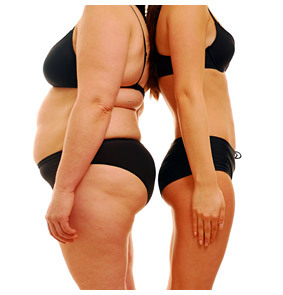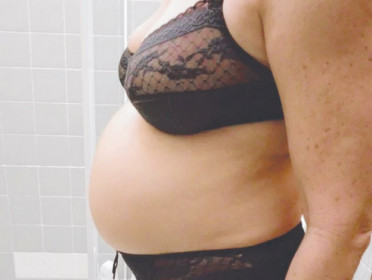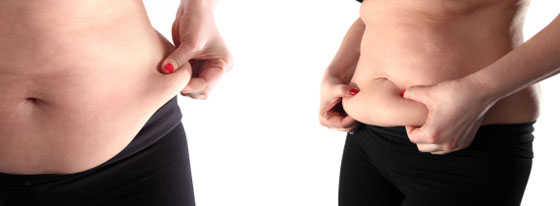If you suffer from troublesome digestive issues like bloating, gas…
Constipation, heartburn, digestive discomfort, irregular bowel movements.
You’ll definitely want to read this very important message…
Coffee’s natural laxative stimulates muscles in our digestive system.
Let’s see which of these solution helps and gives you the best results.
The coffee insights can help boost and shape all your future choices.
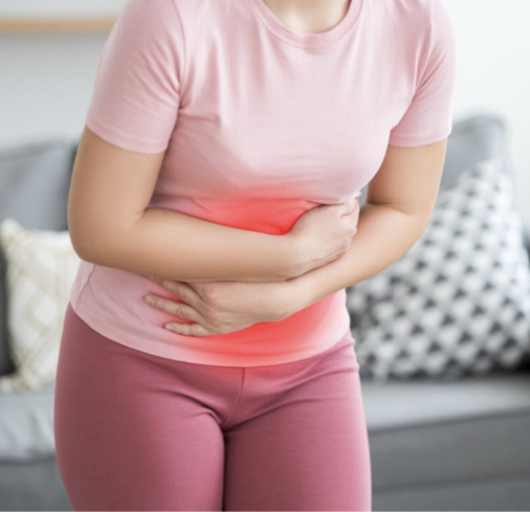
Why Does Coffee Cause Bloating?
Keep reading to discover the answer to…
“Does coffee cause bloating”
What’s the relationship between coffee and digestive discomfort.
Coffee is one of the most popular beverages worldwide.
It is cherished for its invigorating aroma and energizing effects.
But for some coffee enthusiasts, there is an unsettling feeling…
And that’s because their favourite brew causes bloating.
Many coffee drinkers have experienced that uncomfortable feeling.
It is like a swelling or tightness felling of abdominal fullness.
That uncomfortable swollen belly after indulging in a cup of joe…

This has almost become a daily concern, which has sparked curiosity.
And led to questions about whether coffee is to blame for this digestive discomfort.
In this article, we will delve into the relationship between coffee and bloating.
Exploring what contributes to this phenomenon.
And providing insights to help you navigate the impact of coffee on your digestive system.
The Link Between Coffee and Bloating
Anecdotal Evidence and Consumer Experiences
When it comes to the relationship between coffee drinking and bloating.
The anecdotal evidence and consumer experiences play a significant role in shaping the conversation.
Many coffee drinkers experience bloating after drinking their favorite brew…
Their personal experience supports the belief coffee can cause digestive discomfort.
One reason for this anecdotal evidence are certain compounds in coffee.
These compounds can have an impact on the digestive system…
You see, coffee contains various substances.
Including caffeine and chlorogenic acids.
These can stimulate the production of stomach acid and increase gastric motility.
These effects can result in bloating and gastrointestinal discomfort.
Especially in people with sensitive digestive systems…
And high acidity of coffee can contribute to bloating for some people.
The acidic nature of coffee can irritate the lining of the stomach.
And trigger the production of excess gas.
That common feeling of bloating and discomfort.
It’s important to note that individual experiences may vary.
While some people may be more prone to bloating after consuming coffee.
Others may not experience any adverse effects.
There are a list of points to take into account…
Overall gut health, tolerance to caffeine.
And sensitivity to specific components in coffee.
All these points can influence the degree for someone to experience bloating.
While anecdotal evidence provides valuable insights…
It is important to approach it with caution.
Personal experiences can vary greatly.
And what may cause bloating for one person may not have the same effect on another.
To gain a clearer understanding of the connection between coffee and bloating…
It is necessary to explore scientific research and studies that delve into this topic further.
The presence of caffeine in coffee with acids…
Research suggests these contribute to digestive discomfort and bloating for some people.
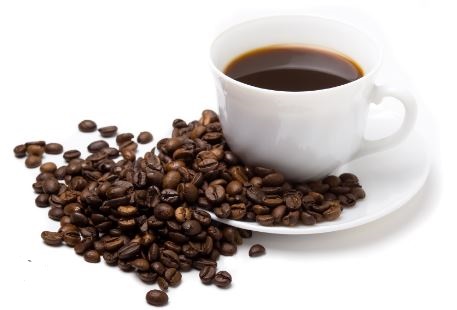
Caffeine
Coffee is well-known for its caffeine, which is a stimulant that can affect gastrointestinal system.
Caffeine stimulates production of stomach acid.
And increases gastric motility…
This means it can speed up movement of food through the digestive tract.
And for some people, this increased activity can result in bloating.
Because it may cause the accumulation of gas in the digestive system.
Chlorogenic Acids
Coffee also contains chlorogenic acids.
These types of acids are natural compounds found in many fruits and vegetables.
These acids have been associated with certain health benefits as well.
But they can also have a stimulating effect on the stomach and digestive system.
Similar to caffeine, chlorogenic acids can increase gastric acid secretion.
And bloating with painful discomfort in people with sensitive digestive systems.
Acidity
Coffee is by nature acidic.
And this acidity can have an impact on the digestive system.
The high acid content of coffee can irritate lining of the stomach.
This can trigger production of excess gas…
And can result in bloating for people susceptible to digestive issues.
Including if they have conditions such as gastritis or acid reflux.
It’s important to consider if these compounds can vary from person to person.
Some people may be more sensitive to the effects of caffeine and acids…
While others may not experience any noticeable digestive discomfort.
Its best to know what our tolerance, and overall gut health is.
And if there are underlying digestive conditions which can influence how our body responds.
It’s always a good idea to pay attention to your body’s unique response to coffee.
And other foods or beverages.
If you notice coffee consistently gives you bloating or digestive discomfort…
It may be worth exploring alternatives or adjusting your consumption habits.
Gut sensitivity and caffeine metabolism
Lets see how gut sensitivity and caffeine metabolism determine the impact of coffee on bloating.
Each compound plays a crucial role in determining the impact of coffee on bloating.
Including gut sensitivity and caffeine metabolism.
These can vary from person to person.
And significantly influence how the body responds to coffee consumption.

Gut Sensitivity
Every person has a unique gut microbiome and digestive system.
And it can affect how they process and tolerate certain foods and beverages.
Some people may have a more sensitive gut.
A stomach that reacts strongly to compounds in coffee…
And caues bloating with digestive discomfort.
We need to know the balance of gut bacteria, intestinal permeability…
And overall gut health can influence sensitivity to coffee.
Caffeine Metabolism
The way our body metabolizes caffeine…
This can impact how it affects digestive function and bloating.
Caffeine is primarily broken down by an enzyme called CYP1A2 in the liver.
Genetic variations can influence the activity of this enzyme.
And the result is differences in caffeine metabolism.
People that metabolize caffeine slower may experience prolonged effects.
Including longer period of digestive system stimulation and bloating.
Food Sensitivities
In some cases, bloating after drinking coffee may be food sensitivity or intolerance.
For example…
Some people are lactose intolerant.
Adding dairy-based creamers or milk to their coffee may cause bloating.
Some people may have sensitivities to additives or sweeteners.
These are commonly found in flavoured or speciality coffee brews.
Identifying specific food sensitivities helps alleviate coffee bloating symptoms.
Overall Digestive Health
The overall health of digestive system plays a significant role in how it responds to coffee.
Sime people have irritable bowel syndrome (IBS).
This is inflammatory bowel disease (IBD).
Other people have gastroesophageal reflux disease (GERD)
These can make our digestive system more susceptible to bloating…
And in some cases painful discomfort is triggered by coffee.
It’s important to consider pre-existing digestive conditions.
And how they may interact with coffee consumption.
Understanding can help us make informed decisions about coffee and bloating.
The Influence of Caffeine on Digestion and Bloating
Caffeine, a natural stimulant found in coffee, tea, and other beverages.
Caffeine has a direct impact on the central nervous system (CNS).
And can affect gastrointestinal motility…
When we drink caffeine it is quickly absorbed into the bloodstream.
And readily crosses the blood-brain barrier, exerting its effects on various parts of CNS.
Central Nervous System Stimulation
Caffeine acts as adenosine receptor antagonist in the brain.
Adenosine is a neurotransmitter.
This promotes relaxation and drowsiness by binding to receptors.
By blocking adenosine receptors, caffeine increases neuronal activity.
This results in increased alertness, improved concentration…
And a sense of wakefulness.
The stimulation of CNS is one reason why people often turn to coffee.
Its part of their morning energy boost or to stay awake.
Gastrointestinal Motility
Caffeine can also influence gastrointestinal motility.
This is the movement of food through digestive tract.
It is a stimulation and inhibitory which effects different parts of gastrointestinal system.
Stimulation of Gastric Acid Secretion
Caffeine has been shown to stimulate the release of gastric acid in the stomach.
It helps with the digestion of food.
Increased gastric acid secretion can help some people with digestive issues.
Especially with low stomach acid production.
But excessive acid secretion can cause heartburn or gastroesophageal reflux.
Increased Colonic Motor Activity
Caffeine can accelerate colonic motor activity.
This means increased contractions and faster movement of stool through colon.
The effect is because of direct stimulation of smooth muscles in the colon.
And for some people the increased colonic motility may cause looser stools or diarrhea.
The effects of caffeine on gastrointestinal motility can vary…
Some people may be more sensitive to these effects.
Others may not experience significant changes in their digestive function.
Consider sensitivity, tolerance, gut health can influence how caffeine affects gastrointestinal motility.
Lower Esophageal Sphincter
Caffeine has been known to relax lower esophageal sphincter (LES)
This ring of muscle separates the esophagus from the stomach.
When LES is functioning properly…
It helps stop back flow of stomach acid into esophagus.
But relaxation of LES caused by caffeine…
Can weaken its ability to keep stomach acid in the stomach.
The result is acid reflux.
And this can contribute to bloating and discomfort in some people.
Here’s how caffeine influences relaxation of LES and contributes to acid reflux…
Reduction in LES Pressure
Caffeine has been found to decrease pressure within LES.
This makes it more likely to open spontaneously.
Or in response to minimal pressure changes.
The relaxation of LES can allow stomach acid to flow back into esophagus.
And the symptoms are heartburn, regurgitation, and bloating.
Delayed Gastric Emptying
Caffeine can delay gastric emptying.
This means movement of food from stomach into small intestine.
Slower gastric emptying can result in accumulation of stomach contents.
And this includes acid with increased reflux and bloating.
Increased Stomach Acid Production
Caffeine stimulates secretion of gastric acid in the stomach.
Excessive production of stomach acid, combined with relaxation of LES…
Can result in acid reflux symptoms and contribute to bloating.
Diuretic Effect
Caffeine is known for its diuretic effect.
This means it can increase urine production and promote fluid loss from the body.
This diuretic property of caffeine can have an impact on water balance.
The result is dehydration and digestive disturbances, including bloating.
Here’s how the diuretic effect of caffeine can contribute to digestive issues..
Increased Urination
Caffeine acts as a mild diuretic by stimulating kidneys to produce more urine.
This can result in increased frequency of urination.
And excretion of larger volumes of fluid from the body.
As a result, water balance may be disrupted, and the body can become dehydrated.
Dehydration and Digestive Function
Dehydration can affect the digestive system in various ways.
Insufficient hydration can result in reduced mucus production in gastrointestinal tract.
And this may impair the protective lining of stomach and intestines.
Dehydration can affect movement of food through the digestive system.
The result can be a slower transit time or constipation.
These disruptions in digestive function can contribute to bloating and discomfort.
Electrolyte Imbalance
When we have fluid loss, caffeine can increase excretion of certain electrolytes.
This includes sodium and potassium, through urine.
Electrolytes are crucial in maintaining proper hydration, nerve function, and muscle contractions.
When electrolyte levels are imbalanced, it contributes to dehydration and disturbances in digestion.
Acids in Coffee and Their Role in Bloating
Coffee contains various compounds, including chlorogenic acid.
Including acidic substances, which can irritate stomach lining and contribute to bloating.
Here’s how these compounds can play a role:
Chlorogenic Acid
Coffee is a rich source of chlorogenic acid.
Its a polyphenol that has been associated with certain health benefits.
But chlorogenic acid is known to be acidic.
And for some people drinking of acidic substances like chlorogenic acid…
Can irritate stomach lining, which means discomfort, bloating, even acid reflux.
Gastric Acid Stimulation
When acidic compounds like chlorogenic acid, enter the stomach.
They can stimulate secretion of gastric acid.
Increased gastric acid production can affect the balance of stomach acid.
And overproduction can irritate stomach lining and cause bloating or indigestion.
Increased Gas Production
Drinking coffee can stimulate production of gas in digestive system.
Studies show a combination of caffeine and acidic compounds in coffee…
Can promote the release of certain hormones and increase gut motility.
And can result in production of excess gas.
This can contribute to bloating and discomfort.
Coffee acidity
This means pH level of coffee.
Lower pH values are higher acidity.
When we drink coffee, the acidity can trigger acid reflux in some people.
Acid reflux happens when lower esophageal sphincter (LES)…
This muscular ring separates esophagus from stomach, relaxes inappropriately.
And it allows stomach acid to flow back up into esophagus.
The acidic compounds in coffee can irritate lining of esophagus.
And cause a burning sensation we feel as heartburn…
The reflux of stomach acid can feel like bloating and discomfort in upper abdomen.
Increased acidity in stomach can affect digestion.
And may lead to indigestion, belching, and gas production.
The cycle continues to heighten the sensation of bloating.
Coffee roast
The roast level and brewing method of coffee can significantly influence acidity.
Lighter roast coffees retain more acidity.
Darker roasts have a smoother, less acidic flavour.
If someone experiences bloating or acid reflux…
They may find darker roasts are gentler on their digestive system.
The brewing method plays a role in coffee acidity.
Brewing methods such as espresso.
And French press tend to extract more oils.
And compounds from the coffee grounds, including acids.
On the other hand…
Brewing methods like pour-over or drip coffee filter out some acidic compounds.
And the final cup of coffee is less acidic.
Individual Factors and Coffee Sensitivity
Variation in caffeine metabolism can impact on how it affects bloating.
There is a enzyme responsible for metabolizing caffeine.
It is called cytochrome P450 1A2 (CYP1A2)…
And genetic factors can influence its activity levels.
Some people are “fast metabolizers” of caffeine.
This means they break it down quickly.
While others are “slow metabolizers” and process caffeine more slowly.
For fast metabolizers…
Caffeine is cleared from the body more rapidly, which may reduce bloating.
On the other hand…
Slow metabolizers may have a longer duration of caffeine in their system.
This can increase the chances of bloating.
There are many factors to consider like age, liver health, and medication use.
All these can influence caffeine metabolism and its effects on digestion.
Certain medications used for acid reflux or gastrointestinal disorders…
Can interact with caffeine and increase bloating symptoms.
Understanding our caffeine metabolism can be helpful in managing bloating.
Caffeine can vary, and may be more sensitive to its effects regardless of metabolism.
Monitoring personal reactions and adjusting caffeine can help.
We need self-awareness with right tolerance level to minimize bloating and discomfort.
Managing Coffee Bloating
Moderate coffee consumption
Limit the amount of coffee you drink on a daily basis.
Start to gradually reduce intake to see if it helps alleviate bloating symptoms.
Some people switch to decaffeinated coffee or alternative beverages like herbal tea.
Choose low-acid coffee
High acidity in coffee can contribute to digestive discomfort.
Consider low-acid coffee varieties, because the beans are naturally low in acidity.
Often the beans undergone a special roasting process to reduce acidity.
Cold brew coffee tends to have lower acidity levels as well.
Pair coffee with food
Drink coffee with food can help minimize the impact on digestion.
Eating a meal or snack before or while drinking coffee can help.
Food acts as a protective barrier for the stomach, reducing bloating.
Smaller servings
Instead of large cups of coffee drink smaller cups.
This is really simple an dallows you to enjoy the flavor.
And experience without overloading digestive system or risk of bloating.
Stay hydrated
Coffee has a diuretic effect, which can contribute to dehydration.
Its important you’re drinking enough water throughout the day for hydration.
Hydration supports proper digestion.
And can help minimize digestive disturbances and bloating.
Pay attention to your body
Listen to your body, because everyone’s tolerance to coffee varies.
Be aware and see how you react to different types and amounts of coffee.
If you notice a specific coffee or brewing method consistently triggers bloating…
Consider making adjustments or exploring alternative options.
Coffee alternatives
If you find coffee consistently causes bloating and discomfort.
Explore alternative beverages that are gentler on the digestive system.
Herbal teas, green tea, or low-acid options like cold brew may be worth trying.
Food diary
A food diary can be a helpful to identify patterns between coffee drinking and bloating episodes.
Simply take note of your daily coffee intake along with other foods and beverages.
You can track and measure between your coffee drinking and bloating symptoms.
This can provide valuable insights into how your body reacts to coffee.
And help you make informed decisions about your coffee drinking.
Be sure to note the type of coffee, brewing method, serving size…
And anything else like food or hydration levels to get a better understanding.
Frequently Asked Questions
Can caffeine in coffee directly contribute to bloating?
Caffeine is not known to directly cause bloating.
But for some people they may experience increased stomach acid production.
And relaxation of the lower esophageal sphincter.
The result can be indigestion and bloating in sensitive people.
How long does the bloating from coffee typically last?
The amount of time for bloating from coffee can vary from person to person.
If bloating happens after drinking coffee…
It may last for a few hours as the body processes and digests the coffee.
Are there any specific factors that can make coffee-related bloating worse?
There are many reasons why coffee-related bloating happens.
One of the biggest is drinking large quantities of coffee.
Drinking coffee on an empty stomach.
Adding high-fat or dairy-based additives like cream or milk.
All these can contribute to bloating and digestive discomfort.
Can switching to decaffeinated coffee help reduce bloating?
Switching to decaffeinated coffee may help reduce bloating for some people.
But caffeine can stimulate the production of stomach acid.
Choosing decaffeinated coffee may minimize increased acidity and bloating.
Bear in mind, other components in coffee like acids and oils can still cause bloating.
Are there any alternative beverages that may be less likely to cause bloating?
For anyone experiencing bloating from coffee…
The best choice is to explore alternative beverages which might be helpful.
Herbal teas like peppermint or ginger tea, are known for their digestive properties.
And may help alleviate bloating.
Non-caffeinated green tea, chamomile tea, or plain water can be good alternatives.
These are less likely to cause bloating.
Experiment with different beverages.
And see how you feel, and what can help identify the most suitable choices.
Conclusion
In this article we discussed anecdotal evidence…
And experiences with connection between coffee and bloating.
Compounds in coffee such as caffeine and acids may contribute to digestive discomfort and bloating.
Gut sensitivity and caffeine metabolism play a role in determining the impact of coffee on bloating.
Caffeine stimulates central nervous system…
And affects gastrointestinal motility, which can result to bloating.
Coffee’s impact on lower esophageal sphincter can contribute to acid reflux and bloating.
The diuretic effect of caffeine can disrupt water balance and contribute to digestive disturbances.
And acidic compounds in coffee, like chlorogenic acid, may irritate stomach lining and cause bloating.
Coffee roast levels and brewing methods can influence acidity of coffee.
And its ability to trigger bloating.
Variation in caffeine metabolism means some people may experience bloating after drinking coffee.
Practical tips for reducing bloating while enjoying your cup of coffee…
Include moderating or choosing low-acid options, and pairing coffee with food.
Keeping a food diary can help track personal reactions.
And identify patterns between coffee drinking and bloating episodes.
A diary helps is to make informed decisions about our coffee intake.
Overall, it’s important to recognize coffee’s impact on bloating can vary from person to person.
And we should listen to our bodies and make choices to suit our own digestive sensitivities.
In a nutshell…
Because of lifestyle choices and environmental factors we face daily.
Toxins in the air, personal care, cleaning products and more.
Poor diet, excess processed, high-sugar foods, not enough fiber.
Nutrient deficiencies such as zinc and vitamin D
Worry, anxiety and excess stress
Dysbiosis (not enough good microbes, probiotics, too many bad ones)
Excess alcohol consumption, now or in the past
Previous bacterial infections, such as from food poisoning
Medications such as NSAIDs and antacids
GMOs, pesticides and herbicides in our foods
The above list is very short…
But you can easily see why gut lining issues affect millions of people.
Matter of fact, all over the world, the causes are almost impossible to avoid.
P.S. It can be really difficult to pinpoint one single cause of leaky gut or other chronic health issues.
But we have a “Gut Repair” special report we now know certain foods, environmental toxins, heavy metals, medications, stress can contribute to serious gut inflammation, which can spiral into chronic health issues.
Comment below if you would like a copy of the Gut Repair special report.
 Can you lose weight eating anything you want? Yes, it is absolutely possible to lose weight and eat whatever you want.
Can you lose weight eating anything you want? Yes, it is absolutely possible to lose weight and eat whatever you want.


